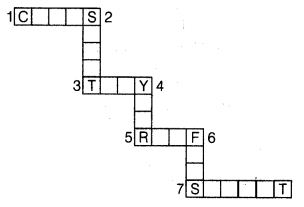Question 1: Complete the following sentences by adding the appropriate parts of the sentences given in the box.
1. Many wise men answered the king’s questions,
2. Someone suggested that there should be a council of wise men
3. Someone else suggested that the king should have a timetable
4. The king requested the hermit
5. The king washed and dressed the bearded man’s wound,
• but the bleeding would not stop.
• to answer three questions.
• but their answers were so varied that the king was not satisfied.
• and follow it strictly.
• to help the king act at the right time.
Answer:
1. Many wise men answered the kings questions, but their answers were so varied that the king was not satisfied.
2. Someone suggested that there should be council of wise men to help the king at the right time.
3. Someone else suggested that the king should have a time table and follow it strictly.
4. The king requested the hermit to answer three questions.
5. The king washed and dressed the bearded man’s wound , but the bleeding would not stop.



Add Comment